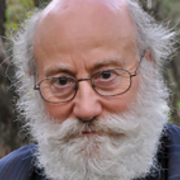
David Hannay
David Hannay began making his mark in the Australian screen industry in the early 70s, as the swell of the Aussie 'new wave' was building. Over the next four decades the Kiwi born producer was proud to work alongside first time directors on over a dozen occasions. The list of emerging talents included New Zealanders Tony Williams (on Solo) and John Day (mood piece The Returning), plus longtime friend Sandy Harbutt (on cult R-rated bikie hit Stone).
Hannay’s career was long enough to trace a path from self-described arrogant maverick, to respected mentor of next generations. His enthusiasm for film and film preservation won him honours from varied Australian screen organisations, including the Raymond Longford award, the highest honour given by the Australian Film Institute.
Hannay was the king of co-productions. Golden Harvest/The Movie Company martial arts hit The Man from Hong Kong (1975) marked the first co-production between Australia and Hong Kong; romance Solo, which was shot in New Zealand but starred two Australians, was the first NZ-Australian co-pro. Other co-productions included 90s mini-series Savage Play, an Anglo-Kiwi mini-series based on the NZ Natives rugby tour in the 1880s.
Hannay's impressive beard helped make him a distinctive presence over four decades in the industry. In that time he put his energies into more than 50 projects, both film and television; usually it was in some variety of producing role.
A key highlight was 1987 gangster movie Mapantsula. This tale of a small-time black crook was shot on location in Johannesburg, in the final decade of apartheid. A fake script was submitted to appease South African authorities, and the movie was shot quickly in the hope they wouldn't catch on. Invited to Cannes in the Un Certain Regard section, Mapantsula reflected Hannay’s view that the most socially-relevant pictures are "genre pictures, and they work because they say something important in an entertaining fashion.”
Hannay was born somewhere in New Zealand on 23 June 1939. His father Norman arranged shows for Kiwi soldiers while stationed in Italy during World War II, then after the war, befriended a number of major Italian film directors.
From around age nine, David began acting in school productions and joined his father in radio dramas. David had a complex relationship with his father, and with New Zealand; he later described the country as a culture of warriors, and escaped NZ via a stint as a merchant seaman, in an effort to escape the vein of violence he saw running in both his father and grandfather. Hannay argued New Zealanders held their anger inside, whereas Australians let it go more quickly.
Soon after arriving in Australia, in 1958, Hannay got his first film job, and started working his way up the film ladder. A grounding in "all aspects of filming”, he felt, was key to becoming a good producer. Later, helping produce comedy shows at Channel Nine, he was encouraged by his “visionary” boss Clyde Packer, late brother of media baron Kerry.
One of Hannay's earliest production credits was movie The Set (1970), a then rare depiction of homosexuality in Australian culture. Australian film expert Andrew Urban has written how the film “exhibited Hannay’s particular skill of combining hot-button social issues with insightful commentary and commercial instinct.”
In this period Hannay spent four years as head of production for Gemini Productions, which in 1977 merged with the Grundy Organisation. That year he began his long career as an independent producer.
David Hannay died on 31 March 2014, of cancer.
Sources include
'David Hannay - Producer’ Vitascope website. Accessed 9 April 2014
Simon Foster, ’R.I.P David Hannay’ (Obituary) Screen-Space website. Loaded 2 April 2014. Accessed 9 April 2014
Don
Groves, ‘Vale David Hannay’ (Obituary) if.com website. Loaded 1 April 2014. Accessed 9 April 2014
Andrea Stuart, Interview with Thomas Mogotlane - The Voice, 20 December 1988
Andrew Urban, ‘David Hannay brought warrior’s spirit to filmmaking’(Obituary) - Sydney Morning Herald, 2 April 2014
Andrew Urban, 'David Hannay: A Producer, His Demons, His Heroes and His Hates' (Interview) Urban Cinefile website. Loaded June 2000. Accessed 9 April 2014